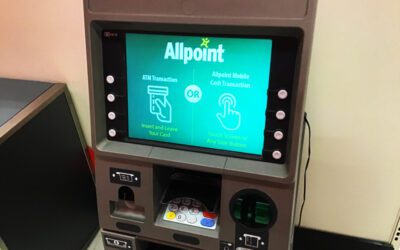Don’t fall for common travel scams. Know what might happen and avoid it.

I’ve got eight common travel scams for you to learn about and avoid.
The bait and switch vacation rental scam:

Only book rentals through trusted sources. Pay for it solely with a credit card. If the accommodation isn’t as good, but is satisfactory, negotiate a lower price or find your own substitute, if possible. If the money you’re owed isn’t immediately returned, contact your credit card company or take other immediate action.
READ ALSO: Hotel safety is still primarily on the shoulders of guests
The bogus website common travel scam:
Unfortunately, there are many fake travel websites bilking users. They look great with wonderful photos and perfect logos. Many look identical to the real thing. The scammer likely paid to get a top search engine listing. At the least, the scammer wants to harvest your credit card information.
Carefully examine the website’s address, its URL. Look for strange characters or oddball spellings. If you’re concerned, independently try to find the company’s real home page. Online, make payments with a credit card which has good consumer protection. Never pay with a debit card or bank transfer.
 The counterfeit common ticket scam:
The counterfeit common ticket scam:
These days, tickets for many events and shows are printed by ticket holders at home or in hotels. It’s easy to print fake tickets, even with bar codes or QR codes on them. It’s impossible to tell in advance if the tickets are legitimate.
Don’t buy tickets from people outside the event or from unfamiliar websites, at any price. Only purchase tickets from authorized sources, your hotel, or verifiable dealers and ticket exchanges.
The currency exchange travel scam:
Too often currency exchange companies, such as those at international airports and many ATMs located in stores and malls. These companies are rip-offs, gouging customers with high exchange fees, service fees and even hiked-up exchange rates.
When you need cash, use your own bank/debit card at a well-known bank’s ATM, inside the bank. That will generally eliminate most fees and you’ll get a legitimate exchange rate. It should also prevent having your card information stolen via an ATM skimmer.
The credit card verification scam:
In this scam, a hotel guest will get a call from someone claiming to be a hotel employee, but they’re not. They’ll ask to verify your credit card used at check-in to harvest its information. They had someone in the lobby who listened for potential “marks” at check-in to know who to call.
To negate this common travel scam, never give out any personal or credit card information on the phone. Tell whoever is calling that you’ll come down to the front desk immediately. Then follow through to alert the hotel. At check-in, speak quietly and never state your room number aloud to make it difficult for scammers.
 The broken taxi cab meter scam:
The broken taxi cab meter scam:
In this scam, after you get into the taxi, the driver will immediately pull out saying that the taxi’s meter is broken, but that he’ll keep the fare low. When you arrive, the charge is absurdly high, but at that point, you’re stuck.
This happens frequently in Mexico and Central America. Protect yourself by negotiating the fare prior to leaving. Otherwise, before leaving, if the driver says the taxi meter is broken or won’t turn it on, get out and get another taxi.
Common pickpocket scams:
These are three of the most used pickpocket scams. In the cardboard gypsy scam, typically, unwashed kids come toward you carrying some cardboard covered in gibberish to distract you while others pick you clean. In the over-swaddled baby scam, you’re distracted by a baby. The “mother’s” wandering hands, hidden under excess cloth, robs you. In the clothing cleaning scam, someone spills something on you and while helping you get clean, cleans you out.
Don’t allow yourself to be distracted by these scams and don’t let anyone approach or touch you. Use neck wallets or money belts to secure your cash, credit cards, and identification.
ALSO ON TRAVELERS UNITED: 15 ways to prevent travel identity theft
The group photo scam:
In this scam a person comes up to you and those traveling with you, offering to take a photo of everyone with your camera. When you give him your camera to use and perhaps have him hold your bag, he absconds with the camera and bag.
If a stranger comes up to you to make an offer to take your photo, don’t do it. It’s one thing to ask someone to take your photo, but another to agree to an unsolicited offer.
Do yourself a big favor. Be alert, be wary and use your street-smarts. Be careful. Use your common sense to avoid falling for these scams.
Credit card photo by rupixen.com on Unsplash
After many years working in corporate America as a chemical engineer, executive and eventually CFO of a multinational manufacturer, Ned founded a tech consulting company and later restarted NSL Photography, his photography business. Before entering the corporate world, Ned worked as a Public Health Engineer for the Philadelphia Department of Public Health. As a well known corporate, travel and wildlife photographer, Ned travels the world writing about travel and photography, as well as running photography workshops, seminars and photowalks. Visit Ned’s Photography Blog and Galleries.



